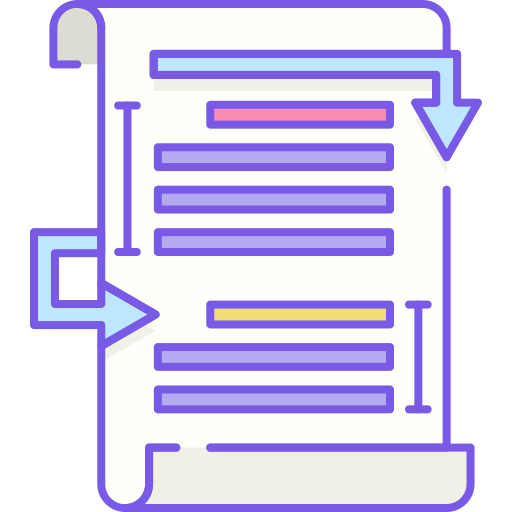Google Gemini
Google Gemini is one of the most highly anticipated advancements in the field of artificial intelligence (AI). With its ability to process vast amounts of data and deliver insightful, accurate, and context-aware results, Gemini is set to revolutionize industries. This article explores Google Gemini, its key features, potential applications, and the future of AI technology.
What is Google Gemini?
Google Gemini is an AI model developed by Google, designed to compete with other advanced language models in the market, such as OpenAI’s GPT series. It represents Google’s efforts to push the boundaries of AI, enhancing its capabilities in understanding and generating human-like text. Building upon Google’s long-standing history of developing cutting-edge AI technologies, Gemini is positioned as the next major leap in this evolving journey.
Gemini integrates advanced machine learning techniques, including deep learning and neural networks, to provide superior natural language understanding (NLU). Unlike earlier models, Gemini is specifically trained to better understand context, tone, and intent in human language. This unique approach makes it more efficient at handling complex queries and delivering relevant responses.
Key Features of Google Gemini
1. Context-Aware Responses
A standout feature of Google Gemini is its ability to comprehend the context of conversations. By understanding the situation or query more deeply, it can deliver responses that feel more natural and intuitive, enhancing user experience.



2. Multimodal Capabilities
Google Gemini can process multiple forms of input, including text, images, and audio, making it an incredibly versatile tool. From chatbots and virtual assistants to content creation and data analysis, Gemini’s flexibility expands its use in various sectors.

3. Improved Accuracy
Thanks to advanced algorithms and a broad range of training datasets, Google Gemini can provide more accurate responses. It excels in specialized fields, such as law, medicine, and technology, ensuring precise and reliable results.

4. Generative Abilities
Google Gemini is not only about understanding but also about creating. It can generate written content, summarize long texts, and even generate code. This generative capability allows Gemini to support content creation and automation tasks efficiently.

5. Personalization
A standout feature of Google Gemini is its ability to learn from interactions over time and adapt to users' preferences. This personalization empowers businesses to offer tailored services, improving user satisfaction and engagement.
Applications of Google Gemini

1. Search Engine Enhancement
As part of Google’s ecosystem, Gemini can greatly enhance search results by delivering contextually relevant and personalized answers. Unlike traditional search models that rely on keyword matching, Gemini’s deep understanding of user intent can lead to more sophisticated and accurate search experiences.

2. Customer Service and Support
Google Gemini’s conversational abilities can be integrated into chatbots and virtual assistants, revolutionizing customer service. By providing intelligent, human-like interactions, businesses can enhance customer satisfaction by resolving issues quickly and offering personalized recommendations.

3. Content Creation
Thanks to its generative capabilities, Google Gemini is an excellent tool for content creation. Whether it’s writing blog posts, summarizing articles, or even generating code, Gemini can help businesses create high-quality content more efficiently.
![]()
4. Healthcare
In the healthcare sector, Google Gemini can assist with tasks such as analyzing medical texts, helping doctors with diagnoses, and summarizing research papers. This will save valuable time and improve clinical decision-making.
![]()
5. Education
In education, Google Gemini can provide personalized learning experiences. It can act as a tutor, assist with homework, and generate customized learning resources, helping students engage with educational content in a more meaningful way.
Development of Google Gemini
Google Gemini is the next step in Google’s ongoing efforts to enhance AI technology. Previously, Google used models like BERT and LaMDA to improve search results and user interactions. With Google Gemini, the focus has shifted towards multi-modal data handling, including text, images, and audio. Gemini is built using deep learning and new methods like reinforcement learning and advanced neural networks, enabling it to process and understand data more holistically.
Challenges Facing Google Gemini
Despite its impressive capabilities, Google Gemini faces several challenges. One challenge is data bias. Even though Google trains its models using diverse datasets, biases in the data can still impact the accuracy of results.
Also, the model might find it a bit tricky to handle languages or cultural ideas that aren't well-represented in its training data. Because of this, Google Gemini may sometimes have a tough time providing consistent results in diverse or less-represented language environments.
The Future of Google Gemini
The future of Google Gemini looks promising as it continues to integrate with more Google services like Google Cloud and Google Assistant. Over time, Gemini will likely play a larger role in personalizing experiences across platforms such as YouTube and Google News, providing tailored recommendations and user insights.
Moreover, as generative AI becomes increasingly important in areas like design and programming, Google Gemini could support businesses and individuals in creating custom solutions, such as designing user interfaces or generating tailored code through self-learning techniques.
Interaction with Other Systems
Google Gemini can also interact seamlessly with other systems like voice recognition and image recognition. This feature will improve the functionality of devices such as Google Home and Android by allowing them to process complex instructions and handle images, videos, and audio more effectively.
Conclusion
Google Gemini represents a significant milestone in the development of AI technology. With its combination of natural language understanding, multimodal capabilities, and generative abilities, it holds the potential to transform industries and redefine how we interact with machines. As the AI landscape evolves, technologies like Google Gemini will play a crucial role in shaping the future of human-computer interaction.